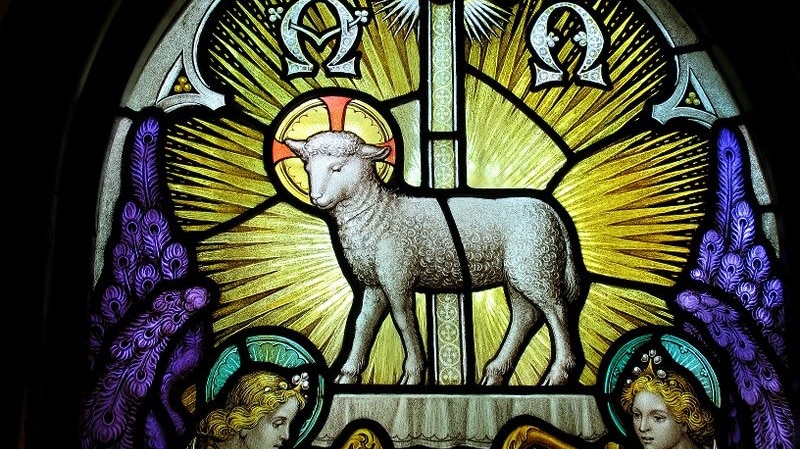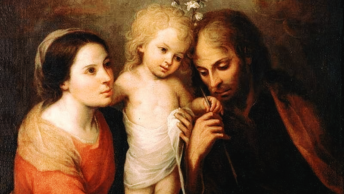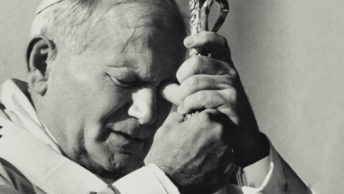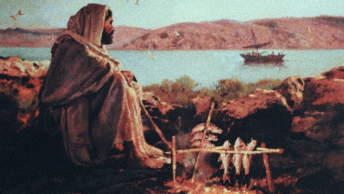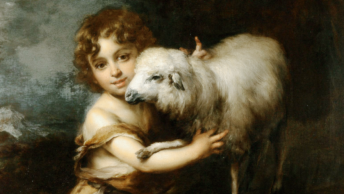Months before a momentous family reunion or a big wedding, our mind fills already with anticipation and wanders into a future crammed with vivid images of what we dream will happen in the course of the celebration. According to the role assigned to us on that eventful day, we prepare ourselves as best we can; we do not mind making adjustments to our schedule and plans; we accept gladly the extra costs, the unusual sacrifices and demands. It is widely understood that whatever is required of us will be well rewarded with fun and enjoyment.
Thus, it should not surprise us that, on this 28th Sunday in Ordinary Time, we learn of similarities with the glorious and most promising celebration awaiting us beyond the grave. Jesus tells us that heaven can be conceived as an endless wedding banquet unmatched in any way and surpassing our wildest expectations and hopes. It is his wedding, the nuptials of the Lamb whose Blood was poured out on a cross to wash us clean of all sins.
At this heavenly wedding we are not meant to be merely guests but, rather, active participants, in the sense that, all of us, as people of one mind and one heart, are making up the bride of the Lamb; we are the Church.
Sadly, in these years before that heavenly family reunion, before sitting around God’s celestial table, we might conduct ourselves in a way unbecoming of that event and our preparation might be spotty. Our puny minds can easily grasp the significance of a family reunion organized by other human beings. We can savor, in anticipation, the goodness and the richness of any memorable wedding, but we get so easily sidetracked that we display weak interest, inadequate anticipation and poor preparation for the ultimate Wedding prepared by God the Father for His Son Jesus.
Hence, today, we should stop and try to multiply exponentially the impact of the best human celebrations in which we have thus far participated in order to form in our mind and heart a decent idea of what awaits us and for the unfathomable event for which we should be longing with all the intensity we can muster. We can begin by pointing out the burning disappointment of the King at the snubbing of his invitation.
The king was enraged and sent his troops, destroyed those murderers and burned their city.
How can we explain such a reaction from the King? We do not maltreat God’s servants, our priests; we certainly do not entertain any thought of killing divine messengers. Hence, what would trigger such a violent reaction on the part of the King, i.e. our Heavenly Father, would be our getting so wrapped up in earthly pursuits that we underestimate or reduce the size and the importance of the Wedding Feast awaiting us.
We would lower to human standards the supernatural quality of the Eucharist we consume on this earth and we would not wonder with unbearable expectation what it must be like to be fed the Heavenly Manna for all eternity.
Living in expectation of the Wedding Feast of heaven means, first of all, reprioritizing everything in light of that heavenly, unmatched feast. Concretely, the attitude of uncontainable longing for the Heavenly Manna comports asking simple, basic questions: “How should I handle this success, this illness, this promotion, this loss, this favorable moment, this challenge?”
“How does it affect me in my relationship with the Divine Bridegroom?”
“Does it prepare me for the endless Supper of the Lamb or the excitement of waiting for it is so weak that it cannot help me carry my cross and get over relatively simple obstacles?”
Our reading from St. Paul (PHIL 4:12-14, 19-20) sheds light on these crucial questions. We are supposed to remain on an even keel the way St. Paul was: not too excited by success and prosperity, not too downcast and devastated by the trials of life.
“I know how to live in humble circumstances; I know also how to live in abundance. I can do all things in him who strengthens me!”
The challenge of this parable might be safely encapsulated in this test: “Is my longing for the Supper of the Lamb so intense that I become convinced that I can do all things in him who strengthens me?” What would help us prepare adequately for the Wedding Feast might lie in our refusal to set long-range, detailed, rigid plans.
It might include detachment from whatever is “our farm,” “our business” so as to be totally opened and receptive of God’s design for us. Mindful of the justifiable, yet most dreadful reaction the King can have, we must be careful to avoid being so totally engrossed and taken by our plan, by our farm, by our business that our weekly encounter with God, here, becomes just a parenthesis that we open a few minutes before arriving to church and we close quickly as soon as we step outside.
Let us reflect on this: we cannot improvise the wedding garment which is indispensable for admission into the banquet hall of heaven. That wedding garment ought to be attained, kept properly, washed, ironed and checked carefully daily. If that indispensable, essential garment were not occupying our mind around the clock, we would be reduced to silence before God. And that most dreadful silence would expose our spiritual nakedness caused by indifference, aloofness, disengagement, and self-absorption.
There is no time to waste. We know that the wedding garment is woven from factual, genuine concern, sincere caring and loving service of others, especially the least, the smallest and most defenseless of our brothers and sisters.
The wedding feast of the Lamb must be our most important concern consuming our days and nights, because many are invited but few are chosen.

